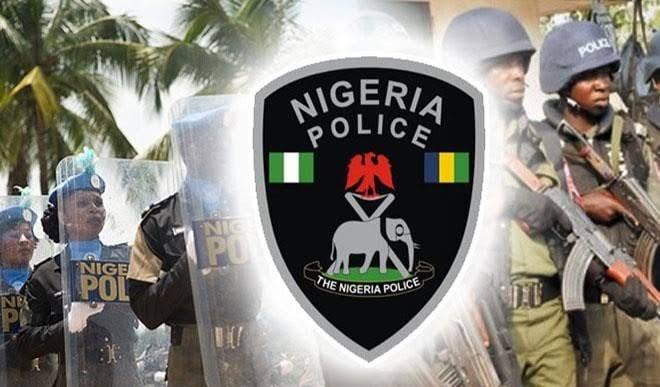

These protesters were tired of the sheer brutality of the police. They were tired of being lied to that the police were their friends when the opposite is just the case. Some of them lost their lives during the protest from law enforcement bullets. Unfortunately, not much has changed in the Nigeria Police Force.
Despite the federal government “agreeing” to the demands of the anti-police brutality protesters in Nigeria, the culture of police brutality has endured. The government promised to reform the force, but there is little evidence of positive results. Young people still come on social media every day to report police brutality and extortion.
This pattern of brutality and abuse in the Nigeria Police Force shows a culture that lacks empathy. The police like to call themselves the friends of the citizens, but many of them do not even attempt to be your friend.
Have you been to a police station recently? Don’t be fooled by that infamous “police is your friend” banner. The average officer responds to you like you just had a fight. Friends don’t treat you that way. Friends treat you with respect. Friends care about you. Friends want you to feel safe in their presence. Friends do not find ways to hurt you. Friends are not intent on ruining your day. Friends do not extort you of your hard-earned money. Friends ask you what they can do to help when you are hurt.
Many Nigerian police officers clearly lack these qualities. Last week, a police officer ran over a citizen in Edo State. The victim was hospitalised. Friends do not do that to you. They do not try to take your life. Notably, the Inspector-General of Police, Kayode Egbetokun, has summoned the wicked officer to the Force Headquarters. While punishing this officer is the right thing to do, it does not even begin to address the root cause of his conduct; a system that lacks empathy.
On Monday, a Twitter user alleged that police officers were manhandling a driver at Cele, under bridge, inward Okota in Lagos State. The cause of the altercation was not clear, but multiple users claim that police officers in that area are known for attacking motorists.
Moreover, police public relations officers (PPROs) who are active on social media will like citizens to believe that police brutality is not a systemic problem — but sadly, all signs point to the fact that it is. Even PPROs — like Muyiwa Adejobi (Force Headquarters) and Benjamin Hundeyin (Lagos State Command) — who are responsive to complaints against police personnel on social media have been caught being insensitive to the plight of Nigerians.
For example, Hundeyin gave the most tone-deaf response to a victim of fraud last week. The victim, a lawyer, had lost more than N4.5 million meant to pay her school fee to fraudsters and complained on social media, tagging relevant police accounts on Twitter. Expectedly, thousands of people sympathised with her.
Not many people would have predicted Hundeyin’s response to the cry for help. The police spokesperson in Lagos responded to the victim’s tweet in a dismissive manner. He wrote, “You’re a lawyer. You know the right channel to follow.”
Truly, official channels are the right way to report fraud, but many citizens use social media because it helps to get the attention of relevant authorities in the shortest time.
SP Hundeyin showed zero sympathy for this victim of fraud. He certainly did not show that he was her friend. A friend would not dismiss your pain. He replied in a characteristic manner — like they were enemies. His behaviour points to a larger issue within the police force — a culture devoid of empathy.
SP Hundeyin, who was supposed to be a public relations officer, either lacked the training befitting of his position, or he just did not care — like many police officers.
In order to change this terrible culture, the Police Service Commission (PSC) and the new IGP must institute courses on empathy in the police academy. Serving officers should also receive regular education. If the police academy is already teaching classes on empathy, they are clearly not working — it’s time for a paradigm shift.
The police authorities — if serious about any reform — must change the culture of non-empathy and reeducate members of the force. President Bola Tinubu also has an opportunity to endear himself to young people by mandating a thorough reform of the police force and ridding it of the bad eggs — of which there are many.
Philip Ibitoye writes for Eko Hot Blog. This media platform reserves all rights to this article.
Click to watch our video of the week:
Oguntamu was honored for his groundbreaking contributions to the African digital media landscape. The Forty…
Gov. Bago has earlier instructed security agencies to take action against those who wear the…
The Federal Ministry of Education wishes to reaffirm the Federal Government of Nigeria’s steadfast commitment…